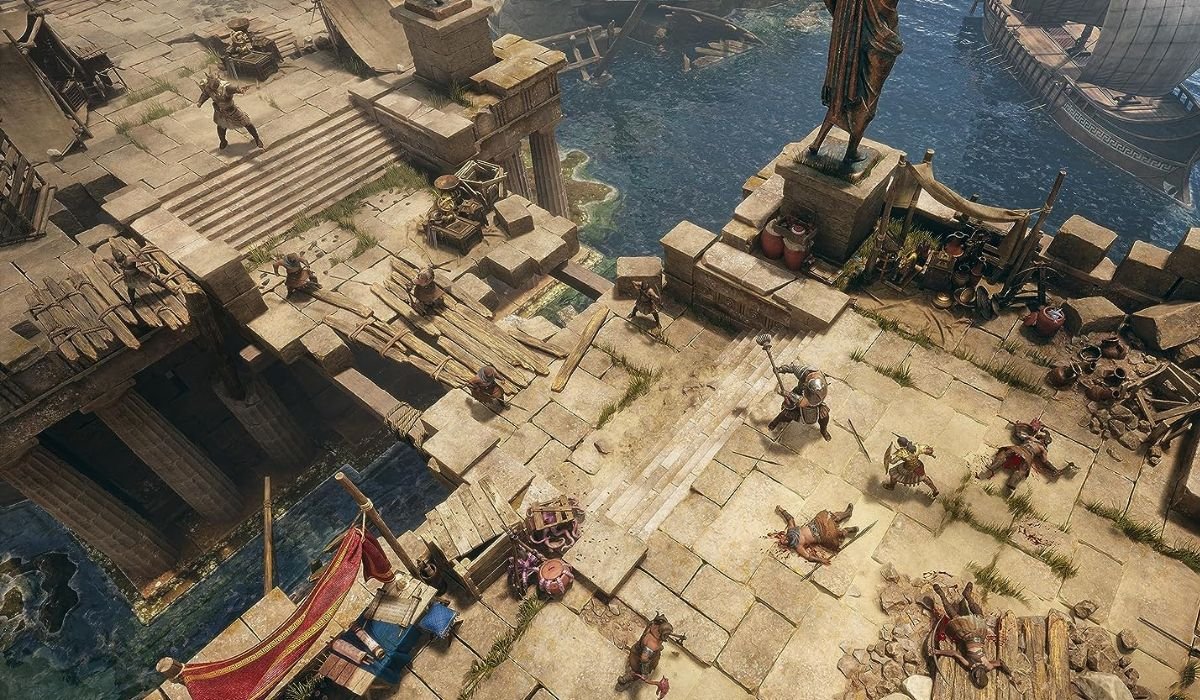Introduction to No Rest for the Wicked Crack
The phrase “no rest for the wicked” has long been a part of cultural language, representing the idea that those who commit immoral acts are doomed to face continuous punishment. In recent times, a more modern interpretation of the phrase has gained traction, as it is often used to describe the relentless pace of life and the pressure people face in today’s world. This article explores the origins, meanings, and contemporary relevance of this phrase, including the concept of a “crack,” which serves as a metaphor for the vulnerability and breaking point of the human body and mind. By examining the phrase from historical, religious, and modern perspectives, we can better understand how it resonates with individuals in both personal and societal contexts.
Brief Overview of the Phrase “No Rest for the Wicked”
The expression “no rest for the wicked” is commonly used to convey that those who engage in sinful or immoral behavior will not find peace or relief, even in moments of rest. The word “wicked” refers to those who are seen as morally corrupt or sinful, while the lack of rest symbolizes their endless punishment. Over time, the phrase has evolved, and its use has expanded beyond its original meaning. Nowadays, many people use it to describe the constant stress and challenges of modern life, whether related to work, social expectations, or personal struggles.
Historical Context and Origins
The phrase “no rest for the wicked” has its roots in religious texts, specifically the Bible. In Isaiah 48:22, the scripture says, “There is no peace,” says the Lord, “for the wicked.” This verse implies that those who turn away from righteousness will never find true peace. Over time, the phrase was adapted and incorporated into common speech, reflecting both religious and secular ideas about morality and justice.
In literature and popular culture, the phrase has appeared in various forms, symbolizing the punishment that befalls those who act immorally. It serves as a reminder that wrongdoing has consequences, often extending beyond the immediate act itself.
Contemporary Interpretations and Relevance
In today’s world, the phrase “no rest for the wicked” has taken on a broader, more metaphorical meaning. While it still can refer to individuals engaging in immoral actions, it is now frequently used to describe the never-ending demands and pressures of modern life. People often joke that there is “no rest” for anyone trying to keep up with the fast pace of work, family responsibilities, and social obligations. This interpretation focuses less on morality and more on the constant challenges and stress that can lead to exhaustion.
The Wicked: Defining Sin and Immorality
Different Perspectives on Sin and Immorality
The definition of wickedness, sin, or immorality varies depending on one’s cultural, religious, or personal beliefs. Traditionally, wickedness has been tied to violating moral codes, such as lying, cheating, or harming others. However, what is considered sinful or immoral can shift based on societal values.
Religious Interpretations
Religions like Christianity, Islam, and Judaism often view sin as disobedience to divine laws. In these faiths, individuals who commit immoral acts face divine judgment, and their inability to find peace is seen as part of their punishment.
Secular Interpretations
In a secular context, wickedness may not be connected to religious morality but to social or legal norms. Immorality might be viewed as acts that go against societal rules, such as dishonesty, selfishness, or exploitation of others. In this sense, there is often an emphasis on the impact of actions on the community or society as a whole.
The Role of Societal Norms and Expectations
Societal norms play a significant role in shaping what is considered moral or immoral. Expectations about behavior can vary greatly between cultures and communities, but the pressure to conform to these norms often creates stress and tension for individuals. Failure to meet societal standards may result in punishment, whether formal or informal, leading to a sense of being constantly judged or under scrutiny.
The Consequences: Punishment and Repentance
Traditional Views on Divine Punishment
In many religious traditions, the consequences of sin are seen as divine punishment. Whether through eternal damnation or a lack of peace in this life, the wicked are believed to be held accountable for their actions. The concept of hell or eternal suffering is often used to illustrate the gravity of wickedness.
Modern Interpretations of Consequences
In a more modern context, consequences may not be tied to divine punishment but rather to the real-world effects of immoral behavior. People who act unethically might face legal repercussions, social ostracism, or damage to their personal or professional relationships. There is also an increased focus on the psychological toll of immoral actions, such as guilt, stress, and anxiety.
The Concept of Repentance and Redemption
The idea of repentance is central to many belief systems, offering individuals a chance to atone for their wrongdoings and seek forgiveness. Whether through religious rituals or personal acts of remorse, repentance provides a pathway to redemption and peace. This concept highlights the possibility that even the wicked can find rest if they are willing to change their ways.
The Relentless Pace of Life: Modern Interpretations
The Pressure to Succeed in a Competitive World
In the modern world, many people feel as though there is “no rest for the wicked” due to the constant pressure to succeed. From demanding work schedules to high expectations in education and personal achievements, the pursuit of success can feel like a never-ending race.
Work-Life Balance and Burnout
With the growing emphasis on productivity, many individuals struggle to find a balance between their professional and personal lives. Burnout has become a common phenomenon, as people push themselves to their limits without taking time for rest or self-care.
The Impact of Technology on Our Lives
Technology, while beneficial, has also contributed to the sense of constant connectivity and pressure. With the rise of smartphones, social media, and remote work, it can feel like there is no escape from the demands of life. The lack of separation between work and home life has left many feeling overwhelmed and exhausted.
Deviating from Societal Norms: The Challenges
Social Ostracism and Discrimination
Those who deviate from societal norms may face social consequences, including ostracism, discrimination, or stigma. These punishments can lead to a feeling of isolation, further contributing to the idea that there is no rest for those who don’t conform.
Mental Health Implications
Living under constant pressure can take a serious toll on mental health. Anxiety, depression, and stress-related disorders are common outcomes for individuals who feel they are always struggling to keep up with societal expectations.
The Importance of Individuality and Self-Expression
Despite these challenges, individuality and self-expression are essential for personal growth and happiness. Embracing one’s unique identity can lead to greater fulfillment, even in a world that often pressures people to conform.
The Crack: A Metaphor for Vulnerability and Breaking Point
The Human Body and Its Limitations
The phrase “no rest for the wicked” can also be seen as a metaphor for the human body’s limitations. Pushing ourselves too hard physically can lead to injury, illness, and exhaustion. It is important to recognize when we are reaching our breaking point.
Emotional and Psychological Stress
In addition to physical strain, emotional and psychological stress can cause us to “crack.” The weight of life’s demands can feel overwhelming, leading to breakdowns or periods of intense struggle.
The Importance of Self-Care and Resilience
To avoid reaching this breaking point, practicing self-care and building resilience are essential. Taking time for rest, relaxation, and personal growth can help prevent burnout and allow us to navigate life’s challenges more effectively.
Case Studies: Real-Life Examples
Historical Figures Who Faced the Consequences of Their Actions
Throughout history, many figures have faced severe consequences for their immoral actions. These examples serve as reminders of the importance of accountability and the potential costs of unethical behavior.
Contemporary Individuals Who Have Struggled with the Relentless Pace of Life
In today’s world, many individuals grapple with the unrelenting pressure of life. From CEOs to students, the demands of success can be overwhelming, leading to mental health struggles and burnout.
People Who Have Overcome Adversity and Found Redemption
Despite these challenges, many people have managed to overcome adversity, find redemption, and achieve balance in their lives. These stories of resilience and recovery highlight the importance of perseverance and self-compassion.
YOU MAY ALSO LIKE: Mushoku Tensei Manga 101: All that You Want to Be aware
Conclusion
The phrase “no rest for the wicked” continues to hold significance in both traditional and modern contexts. Whether viewed through the lens of religious morality or as a reflection of the pressures of contemporary life, the idea of relentless struggle resonates with many. By recognizing the importance of rest, self-care, and balance, we can better navigate life’s challenges and avoid reaching our breaking point.
FAQs
1. What does “no rest for the wicked crack” mean?
The phrase “no rest for the wicked” refers to the idea that those who act immorally will face ongoing consequences. “Crack” symbolizes reaching a breaking point, highlighting vulnerability and stress.
2. Where does the phrase “no rest for the wicked” come from?
The phrase originates from the Bible, specifically Isaiah 48:22, which suggests that the wicked will not find peace or rest due to their actions.
3. How is “no rest for the wicked” interpreted in modern times?
Today, the phrase often refers to the relentless pace of life and the constant pressure to succeed, not necessarily linked to morality.
4. What is the metaphorical meaning of “crack” in this context?
“Crack” symbolizes the vulnerability of humans under stress. It represents emotional, mental, or physical breaking points when life’s pressures become overwhelming.
5. Can people find redemption after reaching their breaking point?
Yes, many individuals recover after hitting their breaking point through self-care, resilience, and, in some cases, repentance, leading to personal growth and healing.










